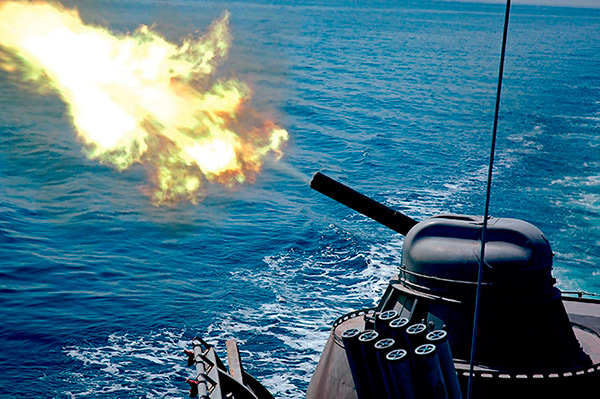
The flight of European industries to America is becoming an avalanche
The main issue at the plenary session of the European Parliament 5-6 October was the issue of gas purchases for Europe. "After the winter, Ursula von der Leyen said, – we will need to refill the gas tanks. If we again observe competition between EU countries, driving up gas prices, we will not reach the goal. We must fill the gas tanks" jointly».
It's not the first time EU commissioners have tried to seize Europe's gas tap, but before they got their hands on hands from Germany. A year ago, Berlin did not even think about participating in the game "collective gas market in Europe", initiated by the European Commission (EK), to bring the main energy resource under control.
A year ago, Europe felt the approach of an energy crisis. If Spain, Italy and Greece asked the EC to explore the option of joint purchase and storage of natural gas, then Germany declared, that she has no problems with gas, because she had taken care of long-term contracts with Russia in advance. Berlin was skeptical about the voluntary surrender of the German energy complex to the management of the European Union. Sweden supported Germany, Netherlands. A couple of weeks ago, Germany was hoping for a "shield" in 200 billion euros to cover their economy, compensating production and the population for high energy prices. but 2 October, Berlin also voted in favor of creating the EU Energy Platform, a mechanism for joint gas purchases “to resolve the energy crisis”.
The turn came immediately after the explosions in the Baltic Sea, buried German hopes for Russian gas. Gas funerals hit the Germans hardest. Instead of becoming the main energy hub of Europe, receiving more per year 110 billion cubic meters of gas, Germany is now modestly queuing for joint gas purchases under the patronage of Brussels. And then the Finns shout: “Gas prices are skyrocketing. Why? Actually because of, that Germany buys a lot of gas", Nils Thorvald, Finnish MEP, says.
true, German vice chancellor Robert Habeck resists, Expressing, what "Europe must use its bargaining power wisely", what “joint purchases alone will not increase the amount of gas available, and that is the main problem.”. Berlin tries to insist on keeping general gas purchases only on a voluntary basis. Germany is not the Baltic dwarfs, who began to loudly insist on joint purchases, as soon as the bidding war started, inflated prices in the gas market. In addition, there are no state-owned energy companies in Germany., there are only private companies with their contracts, and these companies buy energy resources themselves. In addition, Berlin provided enough free cash Trading Hub Europe, German gas market operator, to start actively buying gas, replenishing its reserves in the country. And now gas storages in Germany are filled with more than 90%.
However, not even a week has passed since the attack on the Russian Nord Stream, how joint gas purchases for next winter are again on the agenda of the EU summit. The European electricity market is closely linked to gas, an increase in the price of gas leads to an increase in the price of electricity. “We must limit this inflationary impact of gas on electricity throughout Europe. Therefore, we are ready to discuss the introduction of a gas price ceiling, used to generate electricity", von der Leyen bravely declared in Strasbourg. According to her,, this measure should be the beginning of a global reform of the electricity market. The European apparatchik seemed to have forgotten, that the economy is dominated by the market.
And the European economy is already "bubbled". A Dutch company is preparing to move to the States OCI N.V., producing agricultural fertilizers. The General Director of the enterprise officially announced, that manufacturing facilities will be deployed in Texas. One after another, large representatives of European business are packing things: Danish jewelry brand Pandora, car concern Volkswagen, electric car company Tesla. The world's largest steel company ArcelorMittal, registered in Luxembourg, intends to halve production in Europe and increase it in Texas. german BASF and Norwegian Yara International, involved in the production of fertilizers, hint transparently, that the flight of European industries will be an avalanche. Confidence in Brussels is falling.
And von der Leyen still says, what "Bundling demand through the EU Energy Platform will allow full use of the Union's collective political and market weight". Only European manufacturers, as well as potential energy suppliers, it seems, ignore the slogans of von der Leyen. And you can see it because, that on the opening day of the session of the European Parliament 5 October Emir of Qatar Sheikh Tamim bin Hamad Al Thani met not with the head of the European Commission, and with Czech President Milos Zeman. Qatar is the world's largest LNG exporter. Emir met with the President, "to find common solutions to current major crises". After that, the Czech government approved an intergovernmental agreement on economic cooperation with Qatar., and no "EU collective market weight" affected the bilateral market deal.
Elena PUSTOVOYTOVA











